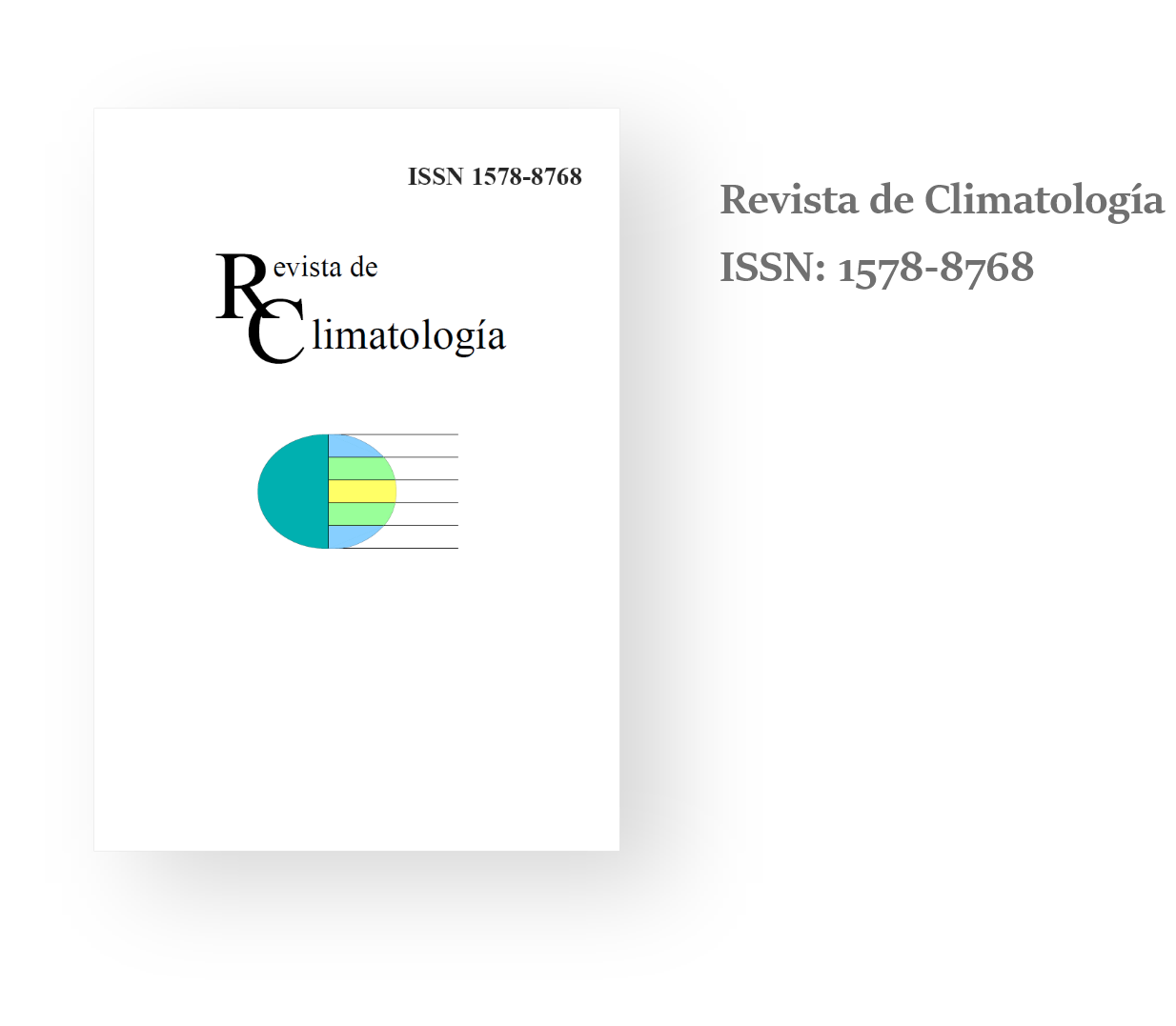Volume 26 (2026)

No Results Found
The page you requested could not be found. Try refining your search, or use the navigation above to locate the post.
Volume 25 (2025)
No Results Found
The page you requested could not be found. Try refining your search, or use the navigation above to locate the post.
Volume 24 (2024)
Rainfall behavior and climate change in the Mayabeque basin, Cuba (1960 – 2020)
Adrián Álvarez Adán DOI: 10.59427/rcli/2024/v24.103-109 The behavior of precipitation in the Mayabeque basin and its projections for the region are diagnosed according to the possible future climatic contexts expected for Cuba. For them, average monthly precipitation...
Recurrence of hurricanes as extreme weather events in Honduras
Alcides Iván Meza DOI: 10.59427/rcli/2024/v24.88-102 From year 1893 to 2020, seven extreme weather events have been recorded in Honduras. The event count follows a Poisson distribution with a $\lambda$ value equal to 1. The arrival intervals follow a continuous...
Statistical and Dynamic Characterization of Snow Precipitation for the 2023 Season in the Arid Andes and its Surroundings
Arnobio Germán Poblete, María José Vera, María Agustina Albeiro Castro DOI: 10.59427/rcli/2024/v24.74-87 The societies of Cuyo and Central Chile are watching what happens to snowfall in the arid Andes as they suffer an increasingly acute and prolonged water deficit,...
Characteristics of Cyclonic Disturbance on India and their Impact Analysis on Human and Economic Losses
Monu Yadav, Laxminarayan Das DOI: 10.59427/rcli/2024/v24.64-73 This paper explores the features of cyclonic disturbances in the North Indian Ocean (NIO) by utilizing data from 1990 to 2022. It investigates the occurrence rate of these disturbances and their effects on...
Validation and evaluation of global solar radiation by applying empirical models based on daily thermal amplitude 2014-2021
Lelia Quispe Huamán, Matías Huillca Arbieto, Vilma Sarmiento Mamani, Guina Sotomayor Alzamora DOI: 10.59427/rcli/2024/v24.54-63 Measuring global solar radiation is a challenging task due to the difficulty in obtaining daily data, primarily due to technical and...
Identifying the relationships of a network of local actors for disaster preparedness. Colombian case study
Lorena Giraldo Gómez, Diana María Cárdenas Aguirre, Juan Camilo López Vargas DOI: 10.59427/rcli/2024/v24.44-53 This article seeks to identify the characteristics of the relationships of the network of actors involved in the preparedness stage of disaster management....
Responses of precipitation in Venezuela to the current unprecedented warming of global ocean waters
Dirk R. Thielen, Mary L. Puche, Paolo Ramoni Perazzi, José I. Quintero, Guillermo Bianchi, Ezequiel Zamora Ledezma, Alberto Quintero, Marco Marquez, Wilmer Rojas DOI: 10.59427/rcli/2024/v24.22-43 This is the first study that addresses the problem generated by the...
Carbon dioxide detection for soil organic carbon quantification
Pedro Antonio Gonzales Sánchez, Bessy Castillo SantaMaría, Carlos Armando Ríos López, Guillermo Vásquez Ramírez, Enrique Arévalo Gardini, Jaime Walter Alvarado Ramírez DOI: 10.59427/rcli/2024/v24.17-21 The telematic network system for detecting CO2 , for the...
Nitrogen dioxide and carbon monoxide levels after the COVID-19 pandemic in the province of Los Ríos, Ecuador
Roberto Johan Barragán Monrroy, Ana Madelaine Macias Mendoza, Betty Beatriz González Osorio DOI: 10.59427/rcli/2024/v24.09-16 The objective of this research was to evaluate variations in tropospheric concentrations of nitrogen dioxide (NO2) and carbon monoxide (CO) in...
Recurrence of Intense winds and precipitation in the Rio Negro Hydrographic lower Basin (Argentina)
Grethel García Bu Bucogen DOI: 10.59427/rcli/2024/v24.01-08 The aim of the study is to analyze return periods and understand the occurrence of intense winds and precipitation in the Rio Negro hydrographic lower basin, in order to enhance the understanding of...








